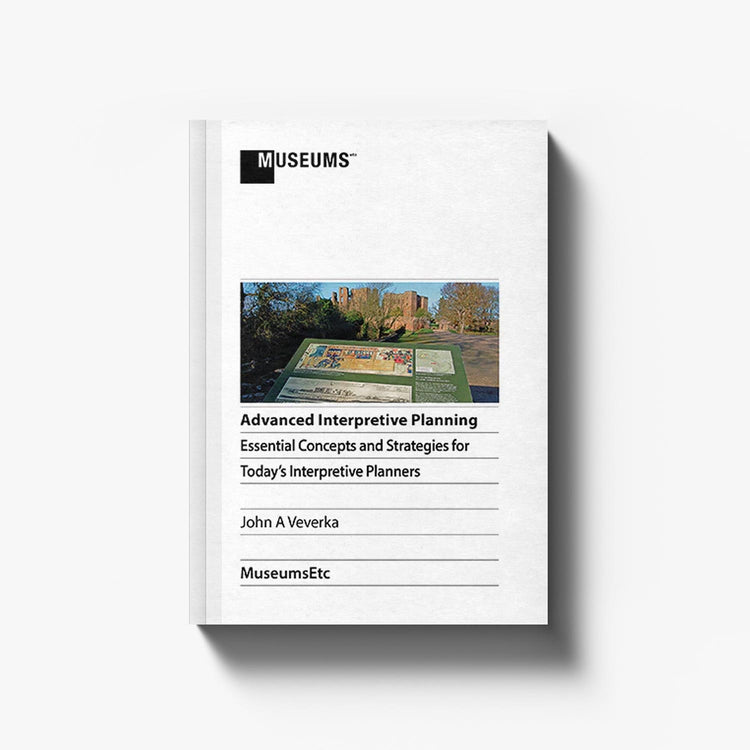Description
Contents list
More
Less
Author
More
Less
Reviews
More
Less
Data
More
Less
Shipping Information
More
Less
Photography Collection
We charge just £5 for worldwide shipping on all our printed books.
Digital Editions
Digital items are sent immediately and automatically via email with a link to download your purchase.
Taxes and customs
Please note that printed books which are shipped may incur import duty or taxes, which vary according to country, and which are payable by the receiver.
European & International orders
When ordering goods for delivery you may be subject to import duties and taxes which are levied once the goods reach the destination. Any such additional charges for customs clearance must be borne by you. We have no control over import duties and taxes and cannot predict what they may be.
Description
“Most ‘interpretation’ is not interpretation at all. It’s just information. it may look attractive, but it fails to deliver the message.” - John Veverka.
Advanced Interpretive Planning: Essential Concepts and Strategies for Today’s Interpretive Planners is based on author John Veverka’s experience of consulting and training on interpretation throughout the world. The key issues it addresses, the in-depth experience it shares, and the powerful learning it provides, reflect the real-world practical needs of interpreters, educators and planners. Insight on many of the topics addressed is unavailable elsewhere.
Advanced Interpretive Planning will inspire and enable you to:
- Provide visitors with genuinely memorable experiences.
- Help visitors appreciate the significance of your organisation.
- Provide added value to your visitors’ experiences.
- Enhance visitors’ choices about how they experience your site and your stories.
- Truly connect with your audiences in new and cost-effective ways.
Introducing exciting new concepts, and refining existing tried-and-tested methodologies, this book will help guarantee that your visitors receive the best possible - and most enjoyable - learning experiences.
Advanced Interpretive Planning will be of relevance and value to: interpreters, educators, curators, designers, planners, architects and landscape architects, tourism professionals, and universities and colleges training in interpretation and tourism.
Contents list
Author
Reviews
Data
Shipping Information
Photography Collection
We charge just £5 for worldwide shipping on all our printed books.
Digital Editions
Digital items are sent immediately and automatically via email with a link to download your purchase.
Taxes and customs
Please note that printed books which are shipped may incur import duty or taxes, which vary according to country, and which are payable by the receiver.
European & International orders
When ordering goods for delivery you may be subject to import duties and taxes which are levied once the goods reach the destination. Any such additional charges for customs clearance must be borne by you. We have no control over import duties and taxes and cannot predict what they may be.
You May Also Like




